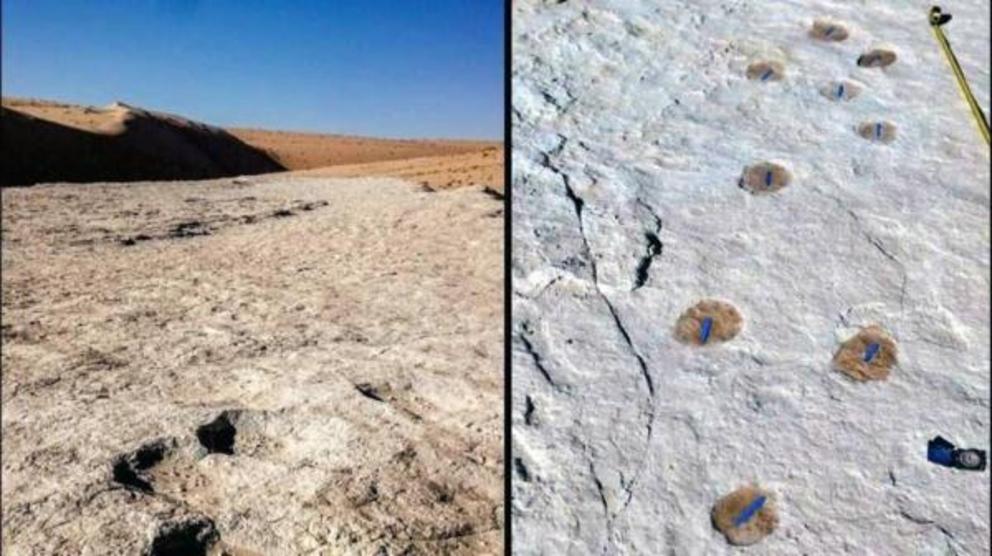Saudi Arabia announces discovery of 120,000-year-old human footprints
RIYADH — Saudi Arabia announced on Wednesday the discovery of 120,000-year-old footprints of humans and predators in the northern region of Tabuk.
The Ministry of Culture, represented by the Heritage Commission, disclosed that a joint team, comprising of Saudi and international archeological experts, made the discovery of footprints of humans, elephants and predatory animals around an ancient, dry lake on the outskirts of the Tabuk region, dating back to more than 120,000 years from now.
Dr. Jasir Al-Herbish, president of the Heritage Commission, announced this during a press conference held under the auspices of Minister of Culture Prince Badr Bin Abdullah Bin Farhan.
Al-Herbish said that this new and important archaeological discovery represents the first scientific evidence of the oldest human habitation in the Arabian Peninsula that provides a rare glimpse into the living conditions of humans in this part of the world during their travels and settlements.
Based on the results of archeological survey, he said, the existence of hundreds of natural pools in the Nafud desert had contributed to the survival and reproduction of living beings of various kinds.
“The team identified footprint traces of seven humans, 107 camels, 43 elephants and other animal traces from ibex, deer and bovine families, which were moving in groups of adults and offspring, in addition to about 233 fossils that represent the skeletal remains of elephants and oryx,” he said.
For the rest of this article please go to source link below.

